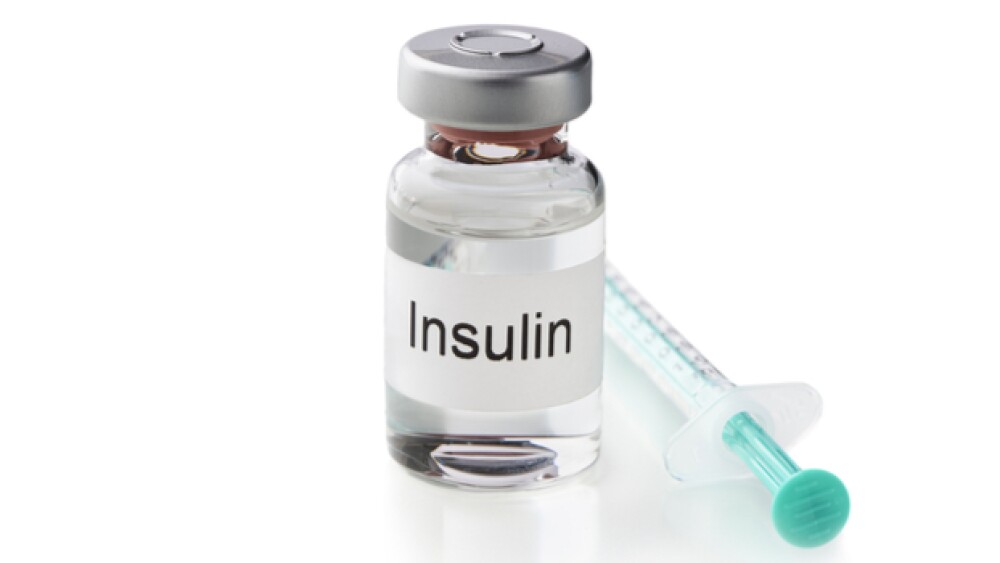In the My$99Insulin Program, patients can buy up to three vials or two packs of FlexPen/FlexTouch/PenFill pens of any combination of Novo Nordisk insulins for $99.
As the drug-pricing debate focuses on insulin for diabetes patients, Novo Nordisk launched its My$99Insulin Program, follow-on brands of insulins, and an Immediate Supply option.
In the My$99Insulin Program, patients can buy up to three vials or two packs of FlexPen/FlexTouch/PenFill pens of any combination of Novo Nordisk insulins for $99. This requires enrolling at NovoCare.com. Patients will receive a downloadable online card or a card that can be emailed to them, which can be redeemed at their pharmacy with a prescription to purchase insulin. The program is available to all eligible patients whether they have insurance or not.
Follow-on brand insulins are also called authorized generics, and are versions of NovoLog and NovoLog Mix manufactured by Novo Nordisk. They are now stocked at the wholesaler level and patients can order them at their pharmacy.
The Immediate Supply option is designed for anyone who might be at risk of rationing insulin. They can visit the NovoCare.com website or call 1-844-NOVO4ME (1-844-668-6463) and the company will provide a free, one-time, immediate supply of up to three vials or two packs of pens of Novo Nordisk insulin for patients with a prescription.
“We know some people still struggle to afford their insulin and we want to help,” said Doug Langa, executive vice president, North America Operations and president of Novo Nordisk. “We’ve talked to people, including those who have been critical of us, and it’s clear there is no one solution that will work for everyone and people need options. That’s why today, we have made available additional options recognizing the different situations that make insulin unaffordable or inaccessible.”
In March, based on political pressure, Eli Lilly & Co., which manufactures the Humalog brand of insulin, pledged to distribute an authorized generic that could be 50% cheaper than Humalog’s $300 per vial price. Toward the end of the year, however, Senators Elizabeth Warren (D-Mass.) and Richard Blumenthal (D-Conn.), blasted the company after they released a survey of almost 400 pharmacies across the company about the availability of its generic insulin, “Insulin Lispro.” The report, titled, “Inaccessible Insulin: The Broken Promise of Eli Lilly’s Authorized Generic,” concluded that the generic product was widely unavailable and that the company had not taken any meaningful steps to increase the drug’s accessibility and affordability.
Lilly responded by calling the conclusions “nonsense,” and publishing a full-page ad in newspapers on Dec. 19 aimed at increasing awareness about Lispro and free insulin for people struggling to pay for it, as well as discounts on insurance co-payments.
“Some pharmacies have chosen not to carry it,” David Ricks, chief executive officer of Lilly told CNBC at the time. “Why? Because this exposes the underlying economics in our system … which is that the middlemen, both in the supply chain as well as [pharmacy benefit managers] and insurance companies, prefer high-list-priced products with a lot of rebate. This has a lower list price and less rebate.”
Sen. Charles Grassley (R-Iowa), chairman of the Senate Finance Committee, opened an investigation into insulin price increases. The Washington Post reported, “The Trump administration’s approach has been mixed. The Food and Drug Administration says it is tweaking rules to increase the likelihood that true generic competition will enter the market, but it is unclear when those efforts will bear fruit.”
Meanwhile, some states are making efforts to make insulin more accessible and affordable. It was reported yesterday that Colorado is the first state to cap insulin prices at $100 per month. That law goes into effect today. The law also has the state’s Attorney General Phil Weiser investigating insulin prices in the state.
Maine is planning to follow suit. A similar bill was introduced by Maine House Speaker Sara Gideon on Dec. 19, 2019 and is backed by Governor Janet Mills. Other states considering similar bills include Massachusetts, New Hampshire, Illinois and Wisconsin.





